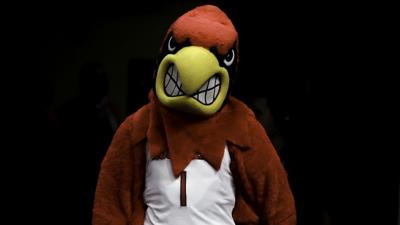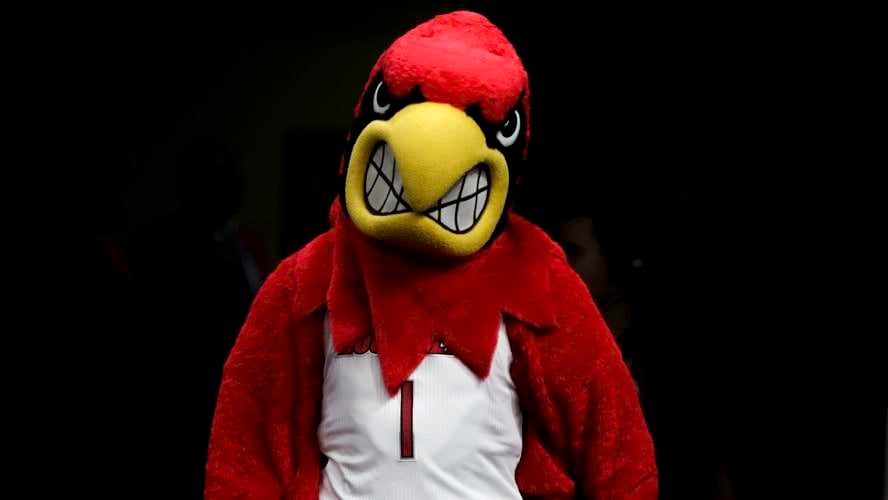LOUISVILLE, Ky. (WDRB) -- The NCAA is nothing if not inconsistent.
On Friday, it issued its sanctions for Michigan football's widespread stealing of opponent signs during a stretch of 52 games over three playoff seasons, one of which culminated in the Wolverines winning a national championship in January of last year.
The report detailed a culture of cheating, of disrespect for the school's compliance officials (who one coach reportedly called "true scum of the earth"). Records were removed and wiped. Head coach Jim Harbaugh failed to cooperate with the investigation. Conner Stalions, found to have run the sign-stealing operation, told a colleague his cellphone and a hard drive with evidence were "at the bottom of a pond" in 1,000 pieces. He called his network of sign-stealers the "KGB." There were some rogue elements to his actions, but his actions were known in the department — including by the current head coach.
From the NCAA's announcement of its sanctions:
"Michigan's repeat violator status, coupled with its Level I-Aggravated case classification, is sufficient grounds for a multiyear postseason ban. However, the panel determined that a postseason ban would unfairly penalize student-athletes for the actions of coaches and staff who are no longer associated with the Michigan football program."
It is a kinder, gentler NCAA (with, admittedly, new infractions rules) than the one that vacated Louisville's 2013 NCAA men's basketball championship for the actions of a coach no longer associated with the program.
And it is time for Louisville to fight back.
In 2013, the NCAA took Louisville's championship away for something its athletes had no part in planning, orchestrating or even fully knowing about. A staff member's sex-for-recruits scheme — repugnant, yes (in the NCAA's own words) — but not tied to wins and losses on the court, was judged enough to erase a banner.
Why? Because the NCAA decided sex was a bridge too far.
Literally, here is what it said:
"The panel need not ascertain an exact value of the activities. The nature of the violations themselves, without more, elevates them to Level I. The types of activities that occurred in this case were repugnant and threaten the integrity of the NCAA Collegiate Model, regardless of any precise dollar value assigned to them."
Louisville's banner wasn't removed because of impermissible benefits received by three members of its 2013 team: two of less than $125 each and a third who testified (with limited immunity) he was present at a stripper party but declined sex when offered. The banner was removed because the entire situation was seedy.
So let's talk about sex.
Specifically, let's talk about the NCAA and its track record on sex-related misconduct. This is not a comfortable conversation. It's a tough column, because the assumption is that it will defend what Louisville did. I don't. No one is defending what happened at Louisville. But if you think the NCAA takes a hard line on sexual violations — both before and after the Louisville violations — think again.
At Penn State, assistant football coach Jerry Sandusky molested children for at least 15 years in locker rooms, showers, even his own office. The Freeh Report concluded school leaders, including coach Joe Paterno, were told of complaints and failed to act. Sandusky was convicted on 45 counts. The NCAA initially imposed sweeping sanctions, including vacated wins and a $60 million fine. But after legal pressure, the NCAA reversed course, restoring Paterno's victories, including two Big Ten championships.
All of that suffering. All of that violent, sexual crime. The wins remain.
At Baylor, players were repeatedly accused of sexual assault. One was convicted of rape, another of multiple assaults. A university investigation revealed a system that prioritized winning over safety, where administrators looked the other way and discouraged victims. And yet, the NCAA declined to act, saying sexual assault — however heinous — didn't fall under its rules.
Read the words from its ruling:
"Baylor admitted to moral and ethical failings in its handling of sexual and interpersonal violence on campus but argued those failings, however egregious, did not constitute violations of NCAA rules. Ultimately, and with tremendous reluctance, this panel agrees."
At Michigan State, university doctor Larry Nassar sexually abused more than 300 gymnasts over nearly two decades. Complaints to the school failed to produce action. The school settled with victims for $500 million. The NCAA's response? Again, nothing. Outside our jurisdiction.
And at North Carolina, for 18 years, athletes were funneled into "paper classes" — fake courses with no instruction — to remain eligible. The NCAA agreed that fraud occurred. But since non-athletes also had access to the sham classes, it ruled that no rules had been violated and issued no sanctions.
Spare us the lectures about what's "repugnant" or "the integrity of the NCAA collegiate model." The NCAA has made its position clear: There is one case, and only one banner, it has chosen to erase.
No one is saying Louisville didn't deserve punishment. It did. But erasing a championship banner for improper sexual behavior — while preserving titles and victories for programs where violent, systemic abuse occurred? The Louisville penalty isn't consistent, nor in keeping with NCAA practice.
The NCAA often claims it doesn't "police morality."
Except it did.
And that brings us back to Michigan. Understand this — there are players on Michigan's 2025 football team who still benefit from that championship. They list it on résumés. It's part of their brand. A selling point to NFL teams, sponsors or future employers. Michigan continues to market the title. It's an actual asset. Their head coach — who got a show-cause from the whole thing, erased text messages — can use the championship in recruiting.
A national championship isn't just an accomplishment. It's property. It has tangible, financial value.
That's not speculation. That's precedent.
When five former Louisville players sued the NCAA to have their records and awards restored from the 2013 title run, the NCAA didn't fight. It settled. It reinstated those honors — a tacit though not agreed-to acknowledgment that such accomplishments belong not only to institutions but also to the athletes who earned them.
A final point: The NCAA can and does reverse course when it sees a penalty as excessive or inconsistent, or when it fears a likely loss in court. It did it for Penn State. It did it for Louisville's players.
It should do it for Louisville's team.
If the NCAA wants to claim fairness and consistency, it needs to act like it. And that means one thing: Put Louisville's banner back up, tainted though it is. Its action regarding Louisville was the exception, not the rule. The NCAA's rulings before and after make no allowance for "repugnance."
There was a time I didn't feel this way. But now, I look at the body of NCAA inaction in these areas. Penn State's wins and championships were restored. UNC's apparent academic fraud went unpunished. Baylor escaped unscathed. Michigan State's abuse wasn't even addressed. And now, Michigan is allowed to keep a trophy won by cheating, with coaches caught destroying evidence.
Let me ask: If you're a coach, which team would you rather face? One that had a couple of players consorting with prostitutes during recruiting visits — or one that had stolen all your signs?
We all know which is the bigger threat to the "integrity" of the college sports model.
Yes, what happened at Louisville is a sordid chapter. But it doesn't deserve to be the only chapter ripped out of the history book. The NCAA has lost its authority to punish a program for sexual misconduct because it has freely given up that responsibility. And without that moral outrage escalator, Louisville's infractions are not sufficient to vacate records.
I do have to acknowledge this might well be a fool's errand. To prove the NCAA ruling was arbitrary and capricious, Louisville would have to prove it didn't follow its own procedures or policies. That's a tough bar to clear. Inconsistency isn't enough. Hypocrisy, alas, is all too legal.
The NCAA can do whatever it wants, sure. But every time it turns its head on egregious wrongdoing — sexual or competitive — it weakens its own position.
And after this latest decision and many that preceded it, the NCAA has never looked weaker. It might well be time for Louisville to make the NCAA defend its decision on the 2013 title in court.
Copyright 2025 WDRB Media. All Rights Reserved.














